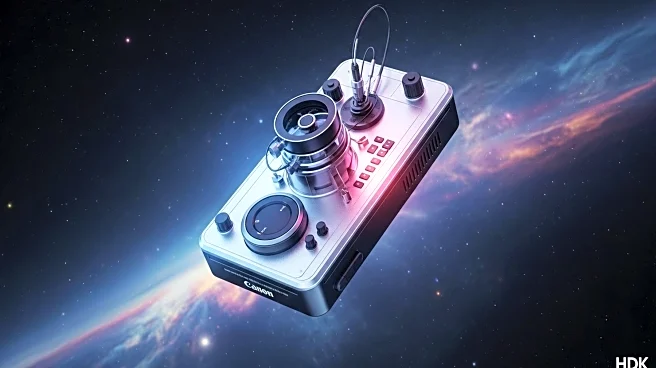What is the story about?
What's Happening?
Purdue University has announced plans to conduct a dedicated suborbital research flight with Virgin Galactic in 2027. The mission, named 'Purdue 1', will be the first of its kind by a university, involving a professor, a student, and alumni. The flight will utilize Virgin Galactic's next-generation spaceplane, designed to carry six passengers, with one seat reserved for research payloads. Steven Collicott, a professor of aerospace engineering at Purdue, will lead the mission, focusing on fluid behavior in microgravity. Graduate student Abigail Mizzi will also participate, conducting similar research funded through donations. Three Purdue alumni will self-fund their seats, with one confirmed participant being Jason Williamson, a senior vice president at Dunaway. Virgin Galactic's president of spaceline, Mike Moses, emphasized the mission's role in making space an accessible frontier for scientific discovery.
Why It's Important?
This mission represents a significant advancement in the integration of academic research with commercial spaceflight. By enabling direct participation of university researchers and students in suborbital missions, Purdue University is setting a precedent for future academic involvement in space exploration. The collaboration with Virgin Galactic highlights the growing accessibility of space for scientific research, potentially accelerating advancements in aerospace engineering and related fields. The mission could inspire other educational institutions to pursue similar opportunities, fostering innovation and expanding the scope of research beyond terrestrial limitations. The involvement of alumni also underscores the potential for private funding to support academic endeavors in space.
What's Next?
As the mission is scheduled for 2027, Purdue University and Virgin Galactic will continue preparations, including finalizing the spaceplane's development and securing funding for the student participant. The university aims to raise $1 million to support the student's involvement, which may involve further fundraising efforts. The mission's success could lead to more universities exploring similar partnerships, potentially increasing the frequency of academic research flights. Stakeholders in the aerospace industry will likely monitor the mission's outcomes to assess the viability and benefits of such collaborations.
Beyond the Headlines
The Purdue 1 mission could have broader implications for the democratization of space access, particularly in the academic sector. By demonstrating the feasibility of university-led suborbital research, the mission may encourage policy changes to support educational institutions in space exploration. Ethical considerations regarding the commercialization of space and the prioritization of research objectives may arise, prompting discussions on the balance between scientific inquiry and commercial interests. Long-term, this mission could contribute to a cultural shift in how space is perceived, moving from an exclusive domain to a collaborative environment for innovation.















